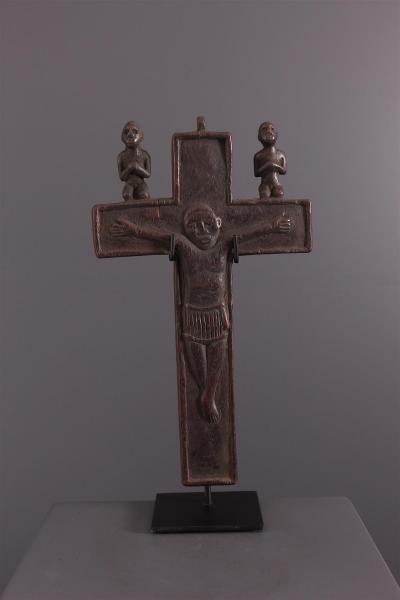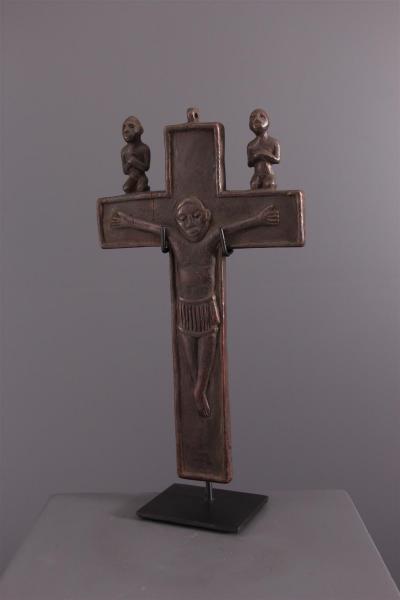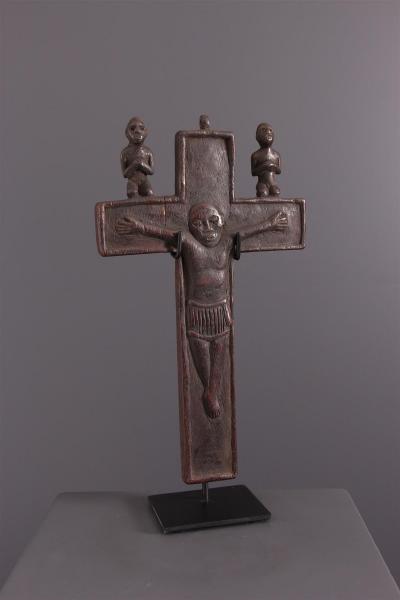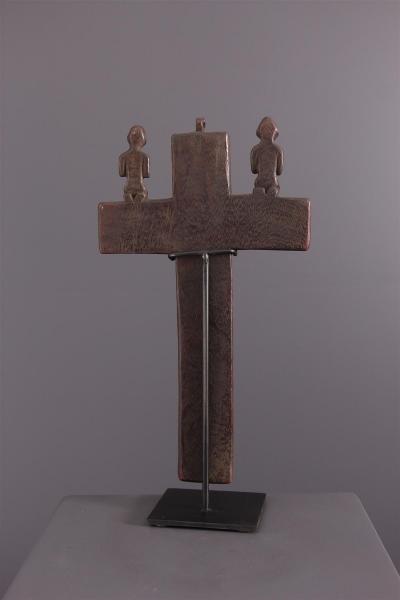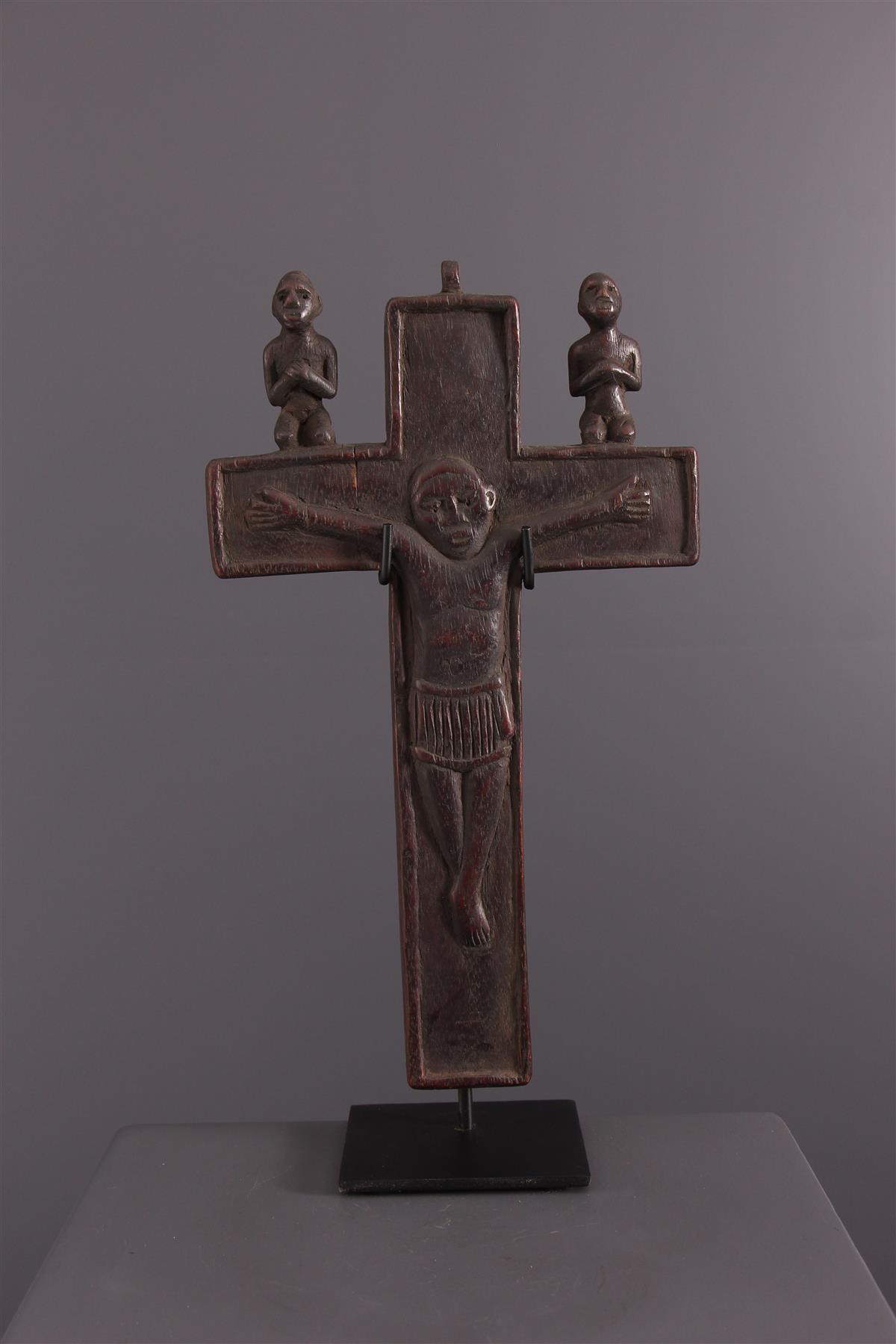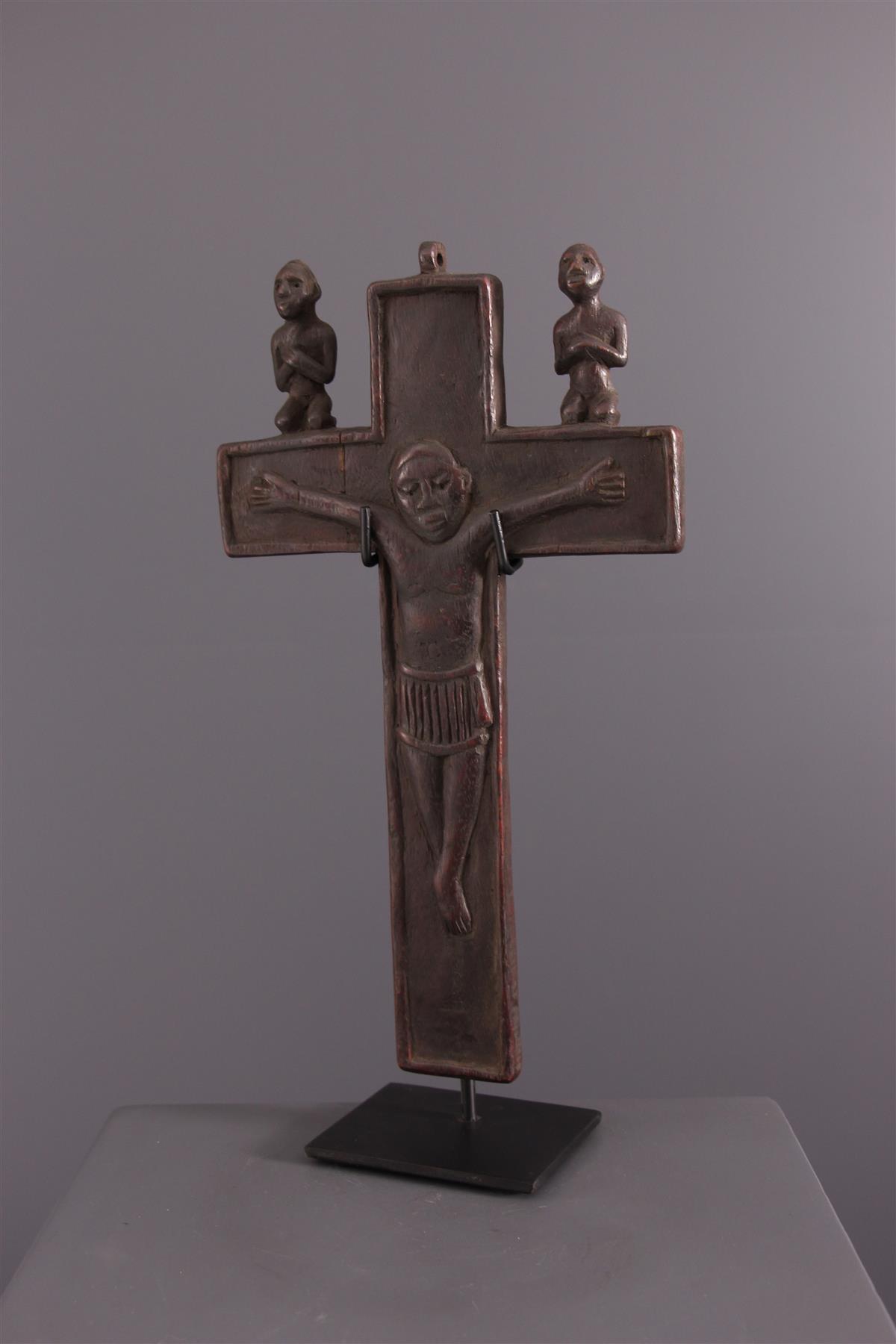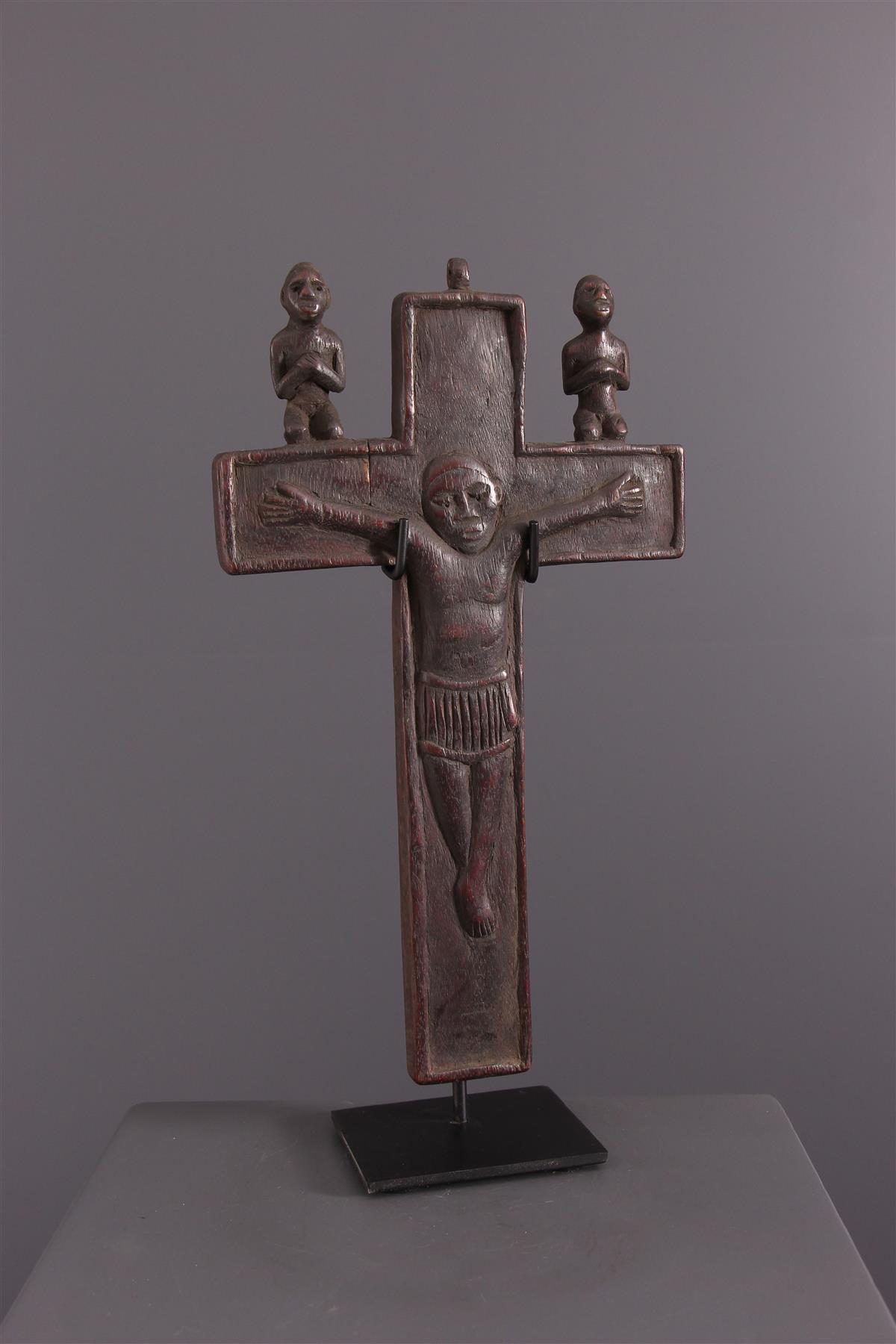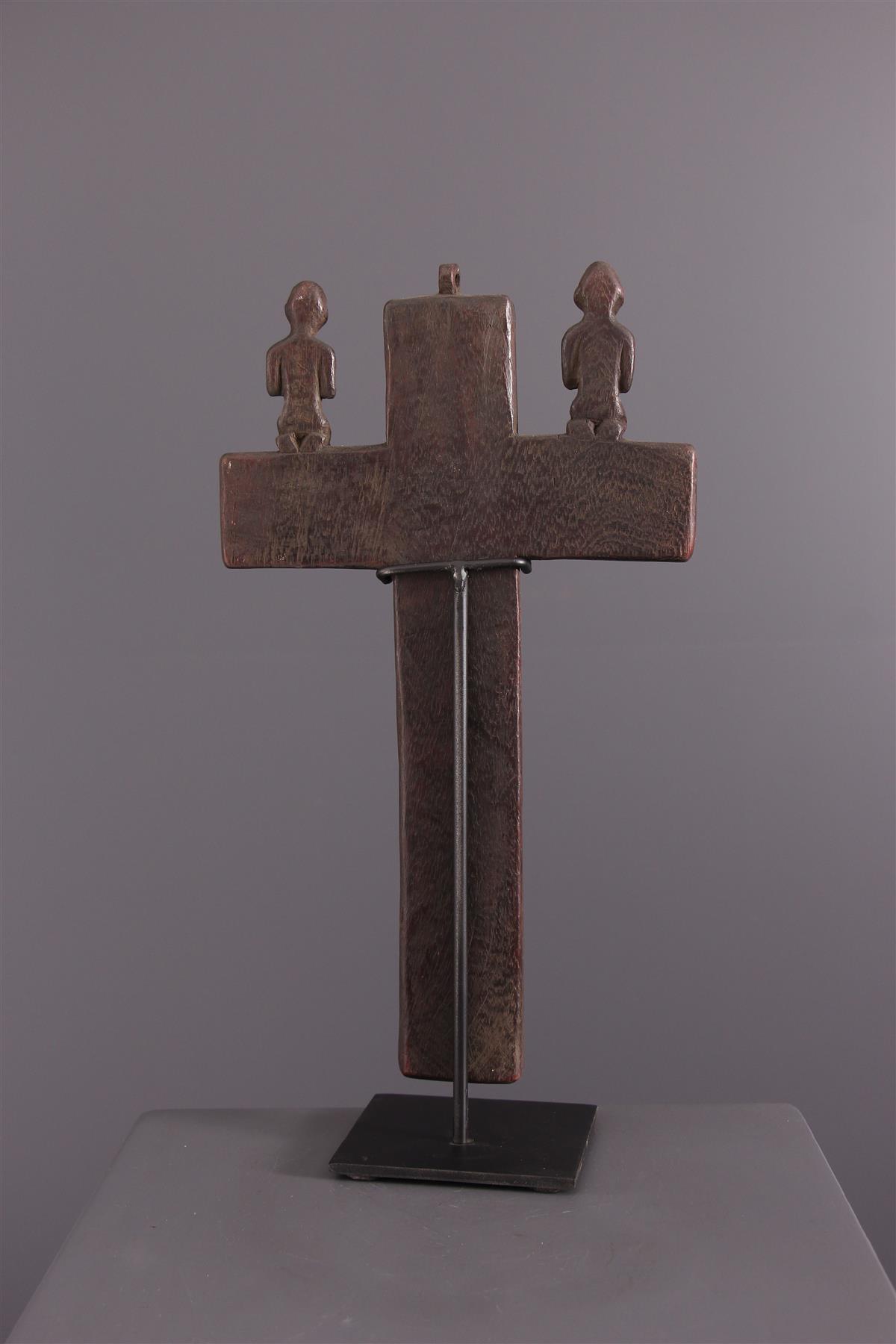Congolese Crucifix Nkangi kiditu
Stand included
Belgian collection
Congo
Wood
Among Kongo chiefs in the late 19th and early 20th centuries, the crucifix was a symbol of power and authority. As part of the ceremony for the investiture of a chief, the future ruler was required to receive a nkangi kiditu from a dignitary in a codified ritual. This insignia of power, inspired by ancient Christian crucifixes imported by the Portuguese in the 16th century, could also have a therapeutic function and, in addition to a variety of other uses, was brandished at funeral ceremonies during which the object was subjected to libations of oil or palm wine.
Dark patina, minor crazing.
The cross is not a motif specific to the Christian world, as the Kongo consider that the four branches refer to the cycle of human existence. The Kongo also used an initiation ceremony, the kimpasi, during which the aspirant underwent a symbolic "death" and then "resurrection". The Kongo applied their worldview to this originally Christian symbol, adapting it to their own values.
Source: "Du Jourdain au Congo" ed. Flammarion; "Art sans pareil" ed. Julien Volper.
Dimensions :
- Height : 36 cm
- Width : 20 cm
Belgian collection
Congo
Wood
Among Kongo chiefs in the late 19th and early 20th centuries, the crucifix was a symbol of power and authority. As part of the ceremony for the investiture of a chief, the future ruler was required to receive a nkangi kiditu from a dignitary in a codified ritual. This insignia of power, inspired by ancient Christian crucifixes imported by the Portuguese in the 16th century, could also have a therapeutic function and, in addition to a variety of other uses, was brandished at funeral ceremonies during which the object was subjected to libations of oil or palm wine.
Dark patina, minor crazing.
The cross is not a motif specific to the Christian world, as the Kongo consider that the four branches refer to the cycle of human existence. The Kongo also used an initiation ceremony, the kimpasi, during which the aspirant underwent a symbolic "death" and then "resurrection". The Kongo applied their worldview to this originally Christian symbol, adapting it to their own values.
Source: "Du Jourdain au Congo" ed. Flammarion; "Art sans pareil" ed. Julien Volper.
Dimensions :
- Height : 36 cm
- Width : 20 cm
This item is sold by a professional art dealer who guaranties its authenticity. This item is used (second-hand)
For sale
Price :
280 € Incl. VAT
Premium and Taxes included
Delivery France:
14.90 € incl. VAT (*)
Country prices, click on See
See more
Hotline
Please contact us for any question regarding this object. For any other inquiry, we invite you to fill the contact form.
Other items from the category « Kongo »
